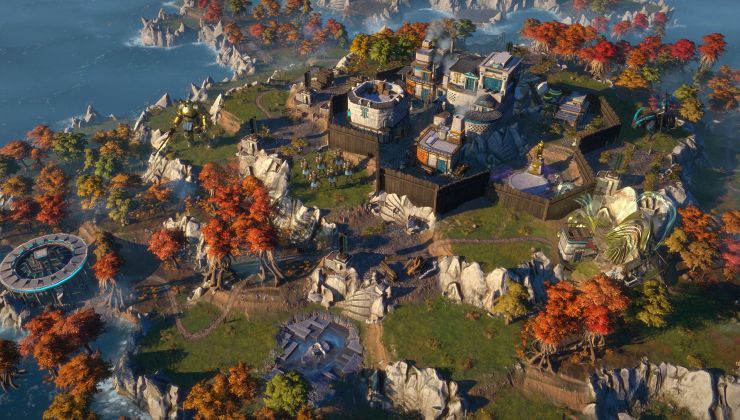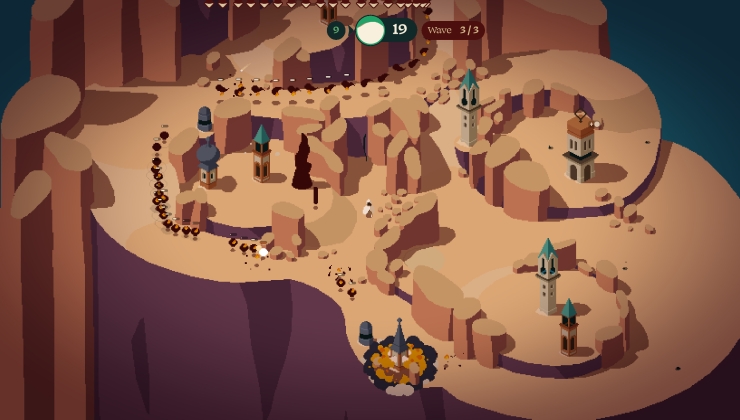It seems Canonical have done a bit of a U-turn on dropping 32bit support for Ubuntu, as many expected they would do. Their official statement is now out for those interested.
The most important part to be aware of is their new plan:
Thanks to the huge amount of feedback this weekend from gamers, Ubuntu Studio, and the WINE community, we will change our plan and build selected 32-bit i386 packages for Ubuntu 19.10 and 20.04 LTS.
We will put in place a community process to determine which 32-bit packages are needed to support legacy software, and can add to that list post-release if we miss something that is needed.
That's not the end of it though of course, eventually 32bit will be dropped which is inevitable really. Just not fully this time. Touching on this, they said in the post about using "container technology" to address "the ultimate end of life of 32-bit libraries" so hopefully by that time everything they need will be in place to make it super easy for users.
I'm glad Canonical have seen some sense on this, they clearly didn't communicate it well enough to begin with but they at least understand when they've made a big mistake like this and owning up to failures is part of what builds trust, so I'm happier now. Next time this happens, I just hope they give a very clear roadmap giving everyone proper time to prepare, which they didn't this time.
Their full statement is here. It will be interesting to see how Valve react, after announcing an end of Ubuntu support for Steam for Ubuntu 19.10 onwards.
Regarding Ubuntu Studio, it's probably to do with all the 32bit binary only vst plugins that are out there.
I care very little. I have read the full statement and it is clear to me that damage control continues.
They still tell me to my face i shouldn't use the 32 bit software i am currently using. Either i am a miscreant or simply an insignificant edge case. And long live to snaps. They are right, we are wrong. They did not fuck up, they are being magnanimous with us. Whether one finds this satisfying or not, it is not a U-turn.
So, i have one year and half to work out a solution with another distro which is plenty enough.
Me too, i am curious about what valve will say. Whether Canonical's compromise will work out well enough or not for steam games, i doubt Valve will accept to depend on Canonical whims.
I would be surprised we get a final answer soon after having read one of their comments about the lack of real desktop distro. My guess is they have already been looking for a while.
indeed this is not a u-turn, but only a postponing of the same "intentions," as Patola rightly pointed out earlier, that were never clearly stated as a public announcement (rather what sounded to nearly everyone like an announcement that i386 install images would be axed, which isn't even close to the same thing).
i also don't think the form this postponing is planned to take is going to go off without many hitches either. users will likely best be served to avoid ubuntu entirely if they don't want to hit any snags.
Maybe I'm paranoid but I think this is actually about Canonical trying to force everyone to use Snaps, and they probably think they have the weight to do it, but if that's the case they're delusional.
not paranoia, the evidence is there and being filtered through your experiences to afford you the intuition of a likely answer. it's just your brain functioning, and i'm wondering the same about their angles ;3 it's not like canonical has a history of trying to get people invested in their own separate project ecosystems /s mhmhhaha
the discussions linked by f.ultra also make this rollout of news, etc, and this light-backpedaling look that much more amateur, frankly. the whole thing smacks of carelessness, and not about all topics entirely, but about some very important consequences. are valve and codeweavers not interested? surely if ubuntu desktop adoption and growth are part of canonical's vision, they would be considered fairly important factors. Owo
if canonical wanted valve to support 32-bit-support monetarily, was this the best decided approach? maybe i'm stupid, but i can't tell what parts of any of this make coherent sense.
Just how many 32 bit apps do you run on your machine? I run one, steam.
The app used to send declarations on Polish taxes electronically is an Adobe Air application which works on GNU/Linux via its old 32-bit runtime.
(OTOH, containerizing it will probably be the easier and safer way to support it, so...)
I can see why they want to remove 32 bit libs because it's a ton of work.But a ton of work for whom? They still get the majority of their packages directly from Debian, throwing a patch on one or the other package and just compile. If Debian still supports newer versions of 32 bit libraries, how much work is there really to be done for canonical?
I think that [this discussion on Twitter](https://twitter.com/Det_Conan_Kudo/status/1142763024618573824) is interesting (imho) on that subject (Neal Gompa is from Fedora). :)
Very interesting discussion, indeed, explaining in detail why maintaing 32bit libs is not easy for those distributions which really care that everything works.
He mentions Mageia a few times, e.g. here: https://mobile.twitter.com/Det_Conan_Kudo/status/1142766407047925760
"Just for note, of all the major distributions today, the only one I know of that still makes 32-bit x86 equal priority as 64-bit x86 for releases, update QA, etc. is
@mageia_org
because its user base of 32-bit users is *much* higher than most of the other distributions."
I cite this to emphasize how important the normal desktop user is for Mageia. Let's explain why this is so: Because Mageia is purely made by "normal" desktop users AND have also absolutely no company interests or dependencies lurking in the background: not financially nor technically. And they are luckily big enough to provide good quality assessment. Yes there are lots of Linux distributions from independent people but only a few are not derivates and have enough manpower to do enough QA.
The desktop user is not the real "customer" for the big Linux distributions. I guess this is the core of the problem.
Last edited by Micromegas on 25 Jun 2019 at 5:22 am UTC
We're mostly talking about Steam and Wine here, both could be packaged with what they need. Sure, that means some minimal bloat, but disk space is really damn cheap (I just bought a 2 TB SSD (!!) for under 400$, so... yeah).
Or, as Canonical said in the announcement, use container technology to keep a "fresh" 32bit environment around for those applications that need it.
I just don't really see the need to keep them around in PPAs, which I think is Canonical's main point here.
Last edited by TheSHEEEP on 25 Jun 2019 at 5:15 am UTC
Why not just use a kind of Snap or flatpak to keep those 32bit libraries around that are needed?I got 4 drives ~3 TB total around 98% full, while having installed 149/320 games. Every containerization would make thing more difficult for new users. And we barley reached a point when Linux gaming is not considered hard. And for the price- remember it is dependent on individual peoples income. For example, in my country you could expect to get paid around 460$ monthly, making such SSD too expensive (Even if relatively cheap per gigabyte). And that is not worst case scenario like Brazil either.
We're mostly talking about Steam and Wine here, both could be packaged with what they need. Sure, that means some minimal bloat, but disk space is really damn cheap (I just bought a 2 TB SSD (!!) for under 400$, so... yeah).
Or, as Canonical said in the announcement, use container technology to keep a "fresh" 32bit environment around for those applications that need it.
I just don't really see the need to keep them around in PPAs, which I think is Canonical's main point here.
I got 4 drives ~3 TB total around 98% full, while having installed 149/320 games.Well, there is your problem.
Only have games installed you actually play. At no point do I have more than 5-10 games or so installed.
Don't blame others for your inability to keep your drive cleaned up, that's your responsibility.
Besides, the largest part of games are assets, not libraries. It would be interesting to have some studies on actual numbers, but I doubt the part that would be "saved" by having libraries only once would be more than 10% of the total, if that much.
Every containerization would make thing more difficult for new users. And we barley reached a point when Linux gaming is not considered hard.That's a joke, right?
Containerization is the easiest thing for new users. You just need to install the program you want and it WILL work, because it is guaranteed to contain everything it needs.
All other approaches will (occasionally) have you install additional software just to be able to run X.
And for the price- remember it is dependent on individual peoples income. For example, in my country you could expect to get paid around 460$ monthly, making such SSD too expensive (Even if relatively cheap per gigabyte). And that is not worst case scenario like Brazil either.Too bad for these people, but those are not the countries pushing technologies, or playing much of a role in business decisions for developers, etc.
Not everyone is in the situation to be able to have and maintain a high-end gaming rig. That's not fair, but such is life.
Last edited by TheSHEEEP on 25 Jun 2019 at 7:47 am UTC
I don't think Ubuntu has to maintain a legacy-compatible public image. They can move on.Yeah, they will move on to oblivion. Without applications, and that include games, they are nothing. Imagine that, its "differential" from other distros being that it doesn't run whole categories of drivers, vsds, applications, games, utilities and libraries.
We have lot of choices, fortunately. In a way, I am kind of glad they tried that while still small. If they were the size of Apple, or worse yet, the size of Microsoft, they would be attempting things much, much worse, because they would think they have the leverage.
Do I seem bitter, or Ubuntu-hater? Well, maybe I am becoming one after using it for more than a decade and sometimes cheerfully defending Canonical. I am becoming one not because of others, but because of Canonical itself. I could see at the time of the accusation of "spyware" that it was a lie against them, I could understand at the time of Unity the way they kind of forced people to use it and agreed with that, I could accept they were trying to innovate with Mir (despite the lies some of their devs said about Wayland) and I really liked Upstart, I understood when they created snaps and even started studying snapcraft, I filed a lot of bugs at launchpad, I subscribed to their mailing lists, I even used Ubuntu Phone on my Nexus 4 for more than a year, but I realized now that they have really no interest in the desktop, no interest in their users and no interest in being a "good" linux distro, they just have starry eyes turned to the corporate world where they think that without mindshare they would take the place of Redhat. And by foregoing the desktop and gaming world by abandoning 32 bits (remember: they JUST POSTPONED IT!), they are losing all that remains of mindshare.
Let's all move on, then. Let's move on from Ubuntu to another distro. I am eagerly waiting for the Steam announcement for a supported distro. I have all my installations in LVM anyway, it's just a matter of replacing / and /usr logical volumes, and I can dual-boot for a while. I hope it's Pop!OS but I would stick with Solus, or Arch, or Fedora.
I think that what you have seen from the outside is Canonical going from having endless funds (from Shuttleworths selling of Twathe) to having those funds being dried up and having to earn actual income in order to stay alive.
I still believe that they have an interest in being a good linux distro, their users and the desktop. Just that they also try to cut everything unnecessary in order to keep the cost down as much as possible and this time they made the wrong decision that they thought that no one was using 32-bit software.
I myself stopped building 32-bit versions of our software back in 2016 when that first announcement came on ubuntu-dev and have not received a single request for it since then so I do think that it's an easy assumption to do unless you are deep into games and Wine.
About the "postponed" bit we don't really know about that either, earlier they where to abandon it altogether so in time they might come to the conclusion that they cannot postpone it either.
2.It is my responsibility of course. But i wanted to show real world use case when even 2 TB are not enough.
3. I context of my previous comments i mean "It is harder for newbies to add external drives when using flatpak Steam". And as you see i focusing on scenario small SSD and secondary HDD. I don't think new user would know how to change default flatpak location, or to allow it to see main file system.
4. It is not fair, but it doesn't mean that we have to make things harder for users that can't have top rigs.
About the "postponed" bit we don't really know about that either, earlier they where to abandon it altogether so in time they might come to the conclusion that they cannot postpone it either.They really did put themselves in a position of uncertainty here, that's for sure.
I was actually planning to just copy my entire linux drive (running Ubuntu 18.04) over to the new SSD once that arrives (Amazon being slow as hell, again...), but all this hassle made me think that maybe I should try out another distro, just for the sake of it and maybe having an option, should this really end badly for Ubuntu.
1. Mobile internet. It is not viable to redownload games in such scenario.We're talking about desktop usage here. What does mobile internet have to do with that?
The fringe case that one is travelling and has to use tethering? Who'd download games in that scenario and not beforehand the games they want to play on the road?
2.It is my responsibility of course. But i wanted to show real world use case when even 2 TB are not enough.That's an extreme case. You can always find extreme cases that make any option look worse than it would be for 99% of people 99% of the time.
3. I context of my previous comments i mean "It is harder for newbies to add external drives when using flatpak Steam". And as you see i focusing on scenario small SSD and secondary HDD. I don't think new user would know how to change default flatpak location, or to allow it to see main file system.True, but that's why I was talking about something like flatpak/Snap. A more user-friendly variant of those, with a proper UI configuration tool, setup wizard, etc.
I don't like either flatpak nor Snap right now, because I think they aren't nearly as easy to use as they should be... especially if you mix them with "normal" PPA installation. Ugh *shudders*.
4. It is not fair, but it doesn't mean that we have to make things harder for users that can't have top rigs.If making things easier for the majority means making it harder for a minority, then I'm all for it, as long as it is within reason. "The need of the many..."
And I consider the small bloat a Snap/flatpak-like approach would introduce absolutely reasonable.
Last edited by TheSHEEEP on 25 Jun 2019 at 8:30 am UTC
1. Small village. No other option then LTE1. Mobile internet. It is not viable to redownload games in such scenario.We're talking about desktop usage here. What does mobile internet have to do with that?
The fringe case that one is travelling and has to use tethering? Who'd download games in that scenario and not beforehand the games they want to play on the road?
2.It is my responsibility of course. But i wanted to show real world use case when even 2 TB are not enough.That's an extreme case. You can always find extreme cases that make any option look worse than it would be for 99% of people 99% of the time.
3. I context of my previous comments i mean "It is harder for newbies to add external drives when using flatpak Steam". And as you see i focusing on scenario small SSD and secondary HDD. I don't think new user would know how to change default flatpak location, or to allow it to see main file system.True, but that's why I was talking about something like flatpak/Snap. A more user-friendly variant of those, with a proper UI configuration tool, setup wizard, etc.
I don't like either flatpak nor Snap right now, because I think they aren't nearly as easy to use as they should be... especially if you mix them with "normal" PPA installation. Ugh *shudders*.
4. It is not fair, but it doesn't mean that we have to make things harder for users that can't have top rigs.If making things easier for the majority means making it harder for a minority, then I'm all for it, as long as it is within reason. "The need of the many..."
And I consider the small bloat a Snap/flatpak-like approach would introduce absolutely reasonable.
2. Off topic: I Really like comment system here. I just argued over the same damn thing with another person. Glad we understand each other now :)
3. Most "Windows Gaming Rig" i sell to customers have 128 or 256 GB system SSD, and hard drive for games. I would say they could not handle setting this up theirselvses (like they do now on windows) if they were to use Flatpak. But again it comes down to point 2, witch we agree on.
4. I still prefer having choice. I'm not Ubuntu user (and i could say that i never been, despite using it from time to time), and a reason for that is that they does not give me level of freedom that i need. As to minority/majority- i don't feel comfortable to discuss that, especially in my not native language.
Surprise, surprise! ;-)
It's all fine that they want to reach another solution some day. Just not this day.
BTW, what would have been the problem with Ubuntu Studio?
Quite a lot of applications to make music aren't 64 bit just yet ( especially LV2 software instruments ) So most Ubuntu Studio users who uses it for music making would be fucked deeply by them dropping 32 bit libs .
Got a friend that made the rounds of all his software instruments barely 13 % of them have a 64 bit binary ...
Sooo that would be a severe set back music making wise.
EDIT : I saw that somebody answered a bit about Ubuntu Studio but yeah professional VST's are mostly windows only or MAC + Windows , and the open source instruments even they are mostly 32 bits like I just said.
Last edited by TheSyldat on 25 Jun 2019 at 8:56 am UTC
Just how many 32 bit apps do you run on your machine? I run one, steam.
The app used to send declarations on Polish taxes electronically is an Adobe Air application which works on GNU/Linux via its old 32-bit runtime.
(OTOH, containerizing it will probably be the easier and safer way to support it, so...)
That's the only thing I use WINE for: my respective (German) tax declaration application. (And I bet it needs 32 bit support.)
Last edited by Eike on 25 Jun 2019 at 9:34 am UTC
I made the switch to Manjaro this weekend, from Linux Mint. It had been something that i had planned to do for a while. The news we got this weekend just helped me make the switch. Although now that ubuntu said they will be keeping their 32bit library support, i am staying where im at.Do not forget to update your profile so we can see interesting statistics for June :)
From tweet:I think that [this discussion on Twitter](https://twitter.com/Det_Conan_Kudo/status/1142763024618573824) is interesting (imho) on that subject (Neal Gompa is from Fedora). :)
Very interesting discussion, indeed, explaining in detail why maintaing 32bit libs is not easy for those distributions which really care that everything works.
"Distributions like Solus keep 32-bit afloat by more or less ignoring it. They basically say "it compiles, ship it". Distributions that actually *care* to validate the 32-bit stuff (Fedora, Mageia, openSUSE, Ubuntu, etc.) have to do a fair bit of work to ensure it's not broken."
Resource constraints aside (as this was presented as a matter of caring, not resource limitation), does Solus trivialize multilib QA?












 How to set, change and reset your SteamOS / Steam Deck desktop sudo password
How to set, change and reset your SteamOS / Steam Deck desktop sudo password How to set up Decky Loader on Steam Deck / SteamOS for easy plugins
How to set up Decky Loader on Steam Deck / SteamOS for easy plugins
See more from me